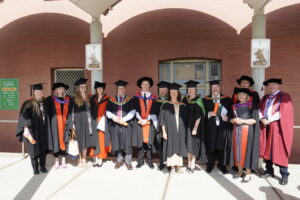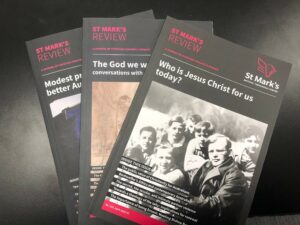Performance of biblical texts focuses us not only on what is being said but also on how it is being said. Through performance, ancient words of Scripture come alive and are interpreted anew for our time and place.
Of course Scripture has always been “performed”. This assertion is literally true for the Israelite community and the Early Church. Biblical traditions themselves speak of performance events where God’s word was presented to audiences. Great leaders such as Moses and Joshua retold the covenant traditions to their communities in order to re-ignite their commitment to YHWH (Deuteronomy 30; Joshua 23–24). In the seventh century BCE, King Josiah gathered the inhabitants of Jerusalem and read aloud the book of the law of the covenant that had been found in the temple (2 Kings 23). Around two hundred years later the scribe Ezra read the book of the law again to the gathered community of returned exiles in Jerusalem, appointing Levites to translate and explain as it was being read (Nehemiah 8). The story of the judge Deborah (Judges 4) sits beside the same story in the form of a song (Judges 5). The song of Hannah (1 Samuel 2) was familiar enough to New Testament audiences for echoes of it to be found in Mary’s song (Luke 1). Nearly half of the superscriptions on psalms give instruction for performance with information about tunes (Psalms 22, 56, 60), instrumentation (Psalms 5, 55, 61), and liturgical use (Psalms 30, 92, 100, 120–134). Luke records Jesus standing and reading from Scripture before an assembled congregation (Luke 4) and all the gospels portray Jesus teaching disciples and crowds in a variety of locations: teaching that is subsequently inscribed in the gospels. The epistles of the New Testament were recited publicly to congregations (1 Thessalonians 5:27) as was the Revelation given to John for the churches, with the book itself beginning with the statement “Blessed is the one who reads aloud the words of the prophecy…” (Revelation 1:3).
The witness of the Scriptures themselves, therefore, remind us that the earliest transmission of biblical material was in an oral/aural context because access to written materials was available only to a small section of the community. Those who did not have access to these materials or literacy skills were still able to hear God speaking through their traditions by hearing the performed. The story of Deborah (Judges 4–5) suggests that the older tradition (the song) was preserved initially in oral form before being inscribed as a written text. In his commentary on Judges, Mark Biddle says of the poem: “its structure, tone, and themes offer significant indications that the song once served a liturgical purpose and that, as a piece meant for public performance, it functioned to evoke a public response.” (Reading Judges: A Literary and Theological Commentary, Smyth & Helwys, 2012, p.63).
Even when these traditions became preserved as scripts, they continued to be circulated in communal contexts where they were performed orally by lectors or orators. In an oral culture, the same tradition will naturally be transmitted with variations due to different transmitters and different audiences. Written traditions served the oral culture. One of the major contributions that Biblical Performance Criticism (BPC) has for Biblical Studies is to rediscover what has been lost as a result of the domination of print and text culture. Rather than a focus on text alone, we emphasise performance, by which we mean a communication event in which traditions are re-expressed for an audience.
For the interpretation of a message, therefore, the whole communication event is important. Communication events include particular social settings, emotional dimensions, tone of voice, gestures, pauses and silence, and audience reaction. BPC focuses not just on what is being said but how it is being said. It reminds us of the centrality of the audience. In our modern text-based culture with readily available multiple-translation access to the Bible, we have forgotten that Scripture has closer affinity with ancient epic poems than modern history and literature. Scripture was presented to audiences in its first iterations and continues to play to new audiences down through the centuries. BPC thus attempts both to establish the original performance event as accurately as possible and to analyze new performances of these ancient materials for new audiences.
The launch of my new book Reading the Megillot: A Literary and Theological Commentary, will include a performance of the biblical book of Ecclesiastes envisaged as a Television Discussion Panel with celebrity guests and musical entertainment.
Whether you attend in person or online, you are invited to view this ancient script with new eyes and ears and be challenged by its ancient wisdom that is still so applicable in our time.
Event: Faculty Book Festival Tickets, Thu 25/05/2023 at 7:00 pm | Eventbrite
Author’s Note: This blog is extracted from the article “Scripture as Performance: Biblical Performance Criticism–what is it and how do I use it?” published in St Mark’s Review No. 249 (2019).











